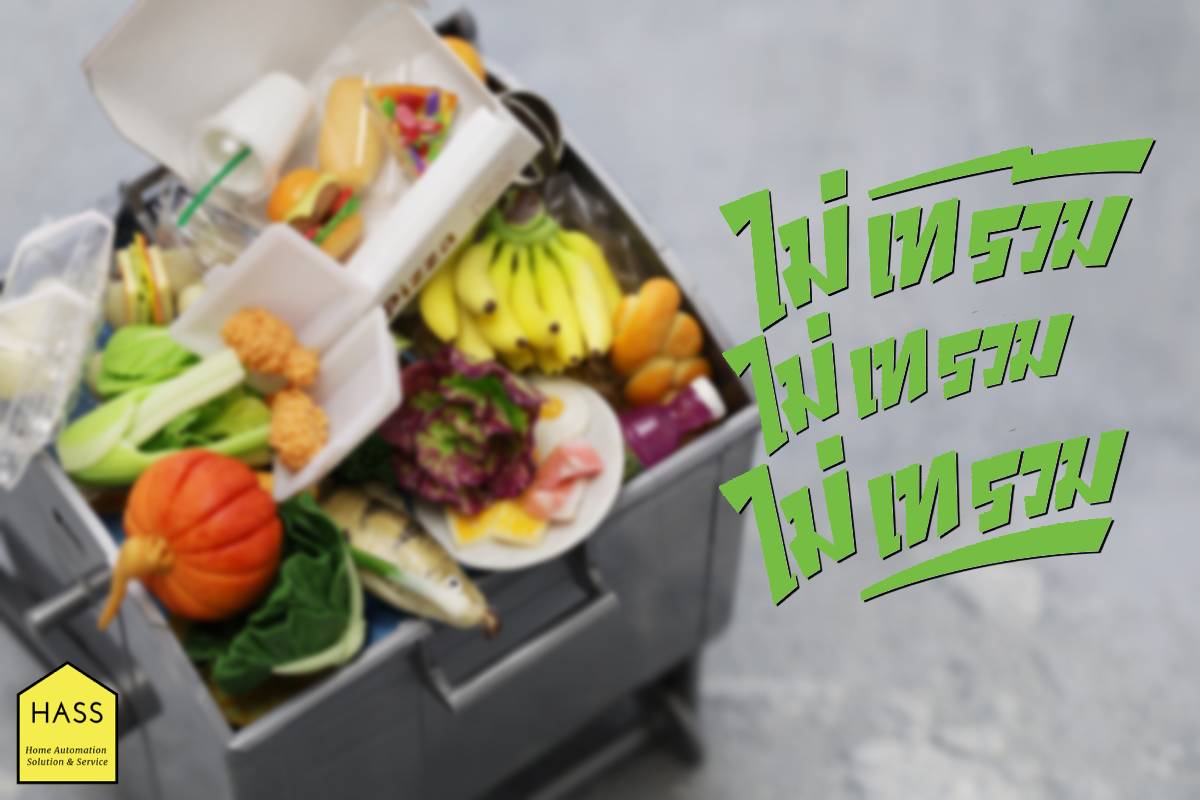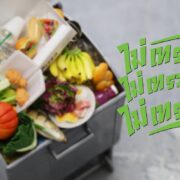Bangkok, a vibrant metropolis brimming with life and culture, also grapples with the growing challenge of urban waste. In response to this pressing issue, the Bangkok Metropolitan Administration (BMA) has been implementing proactive measures to promote waste reduction and encourage proper waste sorting.
One such initiative is the “Mai Tae Ruam” (meaning “No Carelessness”) project, which focuses on food waste management, especially from small and medium-sized businesses.
In tandem with this project, the BMA has revised its garbage collection fees, increasing them from 20 baht to 60 baht per month for standard households.
Let’s explore the details of this multifaceted approach to waste management and how it aims to shape a cleaner, more sustainable Bangkok.
The “Mai Tae Ruam” Project: Engaging Food Outlets in Waste Sorting
The BMA launched the “Mai Tae Ruam” project to tackle food waste generated by small and medium-sized food outlets operating outside large shopping complexes. These establishments contribute a significant portion of the city’s waste, and involving them in a structured waste management program is crucial for long-term sustainability.
Through this initiative, food vendors are encouraged to voluntarily sort their waste and collaborate with district offices for efficient collection. The BMA has partnered with LINE MAN Wongnai to provide resources and tools to facilitate waste sorting. Participating outlets are listed on the website Greener Bangkok, helping eco-conscious consumers support sustainable businesses.
The project’s target is to engage 2,500 food outlets — about 50 venues per district. By fostering partnerships between local businesses and municipal authorities, the BMA hopes to create a ripple effect, inspiring more food outlets to adopt sustainable practices and contribute to a cleaner city.
The Impact of Waste Sorting and Composting Efforts
The project’s impact is already evident. By promoting composting and better waste handling, Bangkok has significantly reduced the amount of garbage requiring disposal. Food waste is converted into compost, which is then used to fertilize public parks, reducing the city’s need for chemical fertilizers.
Tools like the HASS Thailand electric food waste composter are making it easier for both households and businesses to manage their food scraps, speeding up the composting process and minimizing landfill waste. In 2023 alone, this initiative helped divert approximately 880 tonnes of garbage from landfills, showcasing the potential of collective action.
Additionally, the project has helped raise public awareness about waste management. Consumers are becoming more conscious of the waste they generate, and businesses are learning that sustainable practices can enhance their reputation and customer loyalty.
The Revised Waste Collection Fee Structure
To reinforce its waste management efforts, the BMA announced a revised fee structure for garbage collection, effective from October 2025. The monthly fee for standard households producing up to 20 litres (or 4 kilograms) of waste per day has increased from 20 baht to 60 baht. This fee is divided into two components: a 30-baht collection and transportation charge and a 30-baht disposal fee.
However, the BMA has also introduced an incentive for households that sort their waste properly. If residents separate recyclables, food scraps, and general waste, they can continue to pay the previous 20-baht fee. This policy encourages waste sorting and rewards environmentally responsible behaviour.
Fee Structure for Larger Waste Generators
The revised fee structure also accounts for businesses and organizations generating larger volumes of waste. Here’s a breakdown:
- Group 2 (Medium Waste Generators): Restaurants, convenience stores, and similar establishments producing more than 20 litres but no more than one cubic meter (or 200 kilograms) of waste per day will be charged 120 baht per 20 litres. This includes a 60-baht collection and transportation fee and a 60-baht disposal fee.
- Group 3 (Large Waste Generators): Shopping malls, markets, hotels, and other large facilities producing over one cubic meter (or more than 200 kilograms) of waste per day will be charged 8,000 baht per cubic meter. This includes a 3,250-baht collection and transportation fee and a 4,750-baht disposal fee.
This tiered structure ensures that businesses contributing more waste bear a proportionate share of the disposal costs, incentivizing them to adopt better waste management practices to control expenses.
Encouraging Public Participation and Long-Term Benefits
The combination of the “Mai Tae Ruam” project and the revised fee structure aims to embed waste sorting into Bangkok’s culture. The BMA has set up support systems to educate residents on proper waste separation, and public awareness campaigns are helping citizens understand the environmental and financial benefits of waste reduction.
For example, the city offers workshops on composting and recycling, demonstrating how residents can turn food scraps into nutrient-rich compost for their gardens. The BMA also collaborates with local organizations to provide collection points for recyclable materials, making it easier for households to participate in waste sorting.
The long-term benefits of these initiatives are substantial. Reduced landfill usage lowers methane emissions, a potent greenhouse gas. Composting food waste enriches soil quality and reduces the need for synthetic fertilizers. And perhaps most importantly, a cleaner, more organized waste management system enhances the quality of life for Bangkok’s residents, creating a healthier urban environment.
Conclusion: A Collective Effort for a Greener Bangkok
The Bangkok Metropolitan Administration’s approach to waste management — through projects like “Mai Tae Ruam” and a restructured fee system — reflects a forward-thinking strategy to tackle the city’s waste problem. By encouraging food outlets, businesses, and households to sort waste and take responsibility for their environmental impact, the BMA is fostering a culture of sustainability.
The success of these programs, however, depends on public participation and ongoing collaboration between local authorities, businesses, and residents. Every individual effort to sort waste, every business that commits to sustainable practices, and every household that embraces composting brings Bangkok one step closer to becoming a model city for urban waste management.
As Bangkok continues to grow, its commitment to waste reduction and environmental stewardship will be crucial in ensuring a cleaner, greener future for generations to come. Whether through separating waste at home or supporting local food outlets that participate in the “Mai Tae Ruam” project, every action counts. And with the BMA leading the charge, Bangkok is well on its way to transforming its waste management landscape — one sorted bin at a time.


